Related Research Articles
Java Platform, Micro Edition or Java ME is a computing platform for development and deployment of portable code for embedded and mobile devices. Java ME was formerly known as Java 2 Platform, Micro Edition or J2ME.

The S60 Platform is a discontinued software platform for smartphones that runs on top of the Symbian operating system. It was created by Nokia based on the 'Pearl' user interface from Symbian Ltd. It was introduced at COMDEX in November 2001 and first shipped with the Nokia 7650 smartphone. The platform has since seen 5 updated editions. Series 60 was renamed to S60 in November 2005.
The Connected Limited Device Configuration (CLDC) is a specification of a framework for Java ME applications describing the basic set of libraries and virtual-machine features that must be present in an implementation. The CLDC is combined with one or more profiles to give developers a platform for building applications on embedded devices with very limited resources such as pagers and mobile phones. The CLDC was developed under the Java Community Process as JSR 30 and JSR 139.

Minimo was a project to create a version of the Mozilla web browser for small devices like personal digital assistants and mobile phones.
Nokia Series 40, often shortened as S40, is a software platform and application user interface (UI) software on Nokia's broad range of mid-tier feature phones, as well as on some of the Vertu line of luxury phones. It was one of the world's most widely used mobile phone platforms and found in hundreds of millions of devices. Nokia announced on 25 January 2012 that the company has sold over 1.5 billion Series 40 devices. It was not used for smartphones, with Nokia turning first to Symbian, then in 2012–2017 to Windows Phone, and most recently Android. However, in 2012 and 2013, several Series 40 phones from the Asha line, such as the 308, 309 and 311, were advertised as "smartphones" although they do not actually support smartphone features like multitasking or a fully fledged HTML browser.
Opera Mini is a mobile web browser made by Opera. It was primarily designed for the Java ME platform, as a low-end sibling for Opera Mobile, but as of 2022 only the Android build was still under active development. It had previously been developed for iOS, Windows 10 Mobile, Windows Phone 8.1, BlackBerry, Symbian, and Bada.
ThunderHawk is a discontinued web browser from Bitstream available for a full range of operating systems in high end and mass-market mobile phones and personal digital assistants. It is basically meant for mobile operators and original equipment manufacturers and not meant to download for normal users.
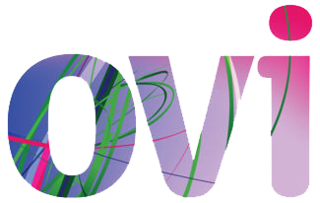
Ovi by Nokia was the brand for Nokia's Internet services. The Ovi services could be used from a mobile device, computer or via the web. Nokia focused on five key service areas: Games, Maps, Media, Messaging and Music. Nokia's aim with Ovi was to include third party developers, such as operators and third-party services like Yahoo's Flickr photo site. With the announcement of Ovi Maps Player API, Nokia started to evolve their services into a platform, enabling third parties to make use of Nokia's Ovi services.
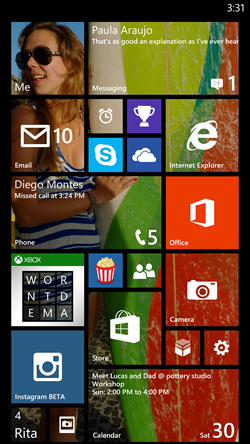
Windows Phone (WP) is a discontinued mobile operating system developed by Microsoft for smartphones as the replacement successor to Windows Mobile and Zune. Windows Phone featured a new user interface derived from the Metro design language. Unlike Windows Mobile, it was primarily aimed at the consumer market rather than the enterprise market.

MicroB was a mobile web browser developed by Nokia for use in smartphones and mobile devices that run the Maemo operating system. The browser is Mozilla-based and uses the Gecko layout engine.
The Nokia 3600 slide is a mobile phone by Nokia that was released in August 2008. The phone runs the Series 40 3rd Edition platform. This is classed as the 'low end version' of the Nokia 6600 slide, its major difference being the lack of 3G support.
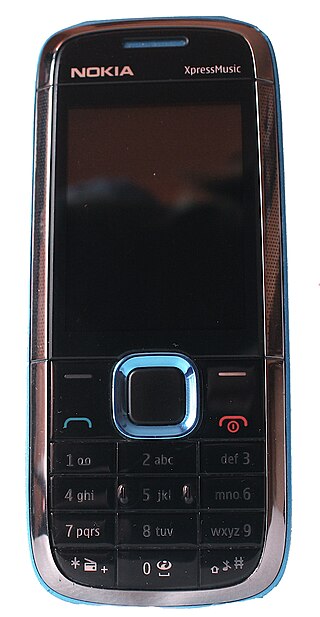
Nokia 5130 XpressMusic is a mobile phone manufactured by Nokia. It belongs to the XpressMusic series of phones, and runs on Nokia's Series 40 platform.It is one of the most selling mobile phone in India from Nokia.
Novarra was a mobile internet software company founded in 2000 and based in Itasca, Illinois, United States. It created web-based services such as web internet access, portals, videos, widgets and advertising for mobile devices. Novarra provided access to the internet and other services through wireless handsets, PDAs and laptops and sold directly to operators, mobile handset manufacturers and internet brand companies. In 2010, Nokia acquired 100% of Novarra's shares.
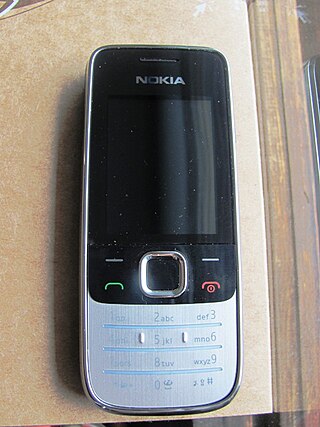
The Nokia 2730 classic is a Nokia Quad-band GSM/UMTS 3G cell phone that includes a camera, FM radio, Bluetooth, music and video player, as well as several internet-based applications.

Windows Phone Store is an app store platform, developed by Microsoft Corporation for Windows Phone letting users installing various apps on their device. It initially launched with Windows Phone 7 in October 2010. With the rollout of Windows Phone 7.5, Microsoft unveiled the online Marketplace that offers over the air installation of apps. In August 2012, Microsoft renamed Windows Phone Marketplace to Windows Phone Store. In 2015, Microsoft announced that Windows Phone Store would be killed out and replaced by Windows Store which would act as a unified store for all Windows-powered devices. This process was complemented by the Apps on Windows website, an interim solution before the unified Windows Store.
Microsoft mobile services are a set of proprietary mobile services created specifically for mobile devices; they are typically offered through mobile applications and mobile browser for Windows Phone platforms, BREW, and Java. Microsoft's mobile services are typically connected with a Microsoft account and often come preinstalled on Microsoft's own mobile operating systems while they are offered via various means for other platforms. Microsoft started to develop for mobile computing platforms with the launch of Windows CE in 1996 and later added Microsoft's Pocket Office suite to their Handheld PC line of PDAs in April 2000. From December 2014 to June 2015, Microsoft made a number of corporate acquisitions, buying several of the top applications listed in Google Play and the App Store including Acompli, Sunrise Calendar, Datazen, Wunderlist, Echo Notification Lockscreen, and MileIQ.

The Nokia Asha platform is a discontinued mobile operating system (OS) and computing platform designed for low-end borderline smartphones, based on software from Smarterphone which was acquired by Nokia. The platform inherits UI similarities mostly from MeeGo "Harmattan", and replaced Series 40 on Nokia's low-end devices. The user interface design team was headed by Peter Skillman, who had worked previously on webOS and the design of MeeGo for the Nokia N9.
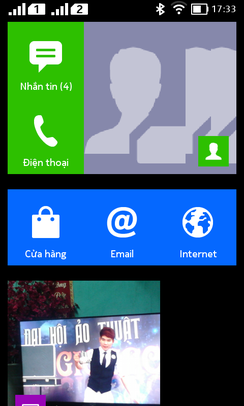
The Nokia X platform was a Linux-based mobile operating system and software platform originally developed by Nokia, and subsequently by Microsoft Mobile. Introduced on 24 February 2014, it was forked from Android and used on all the devices of the Nokia X family. It was also the next Nokia Linux project after the ill-fated MeeGo.
References
- ↑ Jaatinen, Tiina (26 January 2015). "Opera to give new life to classic Nokia phones". Lumia Conversations . Archived from the original on 28 January 2015.
- ↑ "Opera browser debuts on Nokia X Platform". 26 February 2014.
- ↑ Nokia Developer - Nokia Asha — Platform overview. Developer.nokia.com. Retrieved on 2013-08-21.
- ↑ "Opera browser debuts on Nokia X Platform". 26 February 2014.
- ↑ "Nokia Xpress Browser FAQ - Nokia". Archived from the original on March 6, 2013. Retrieved March 12, 2013.
- ↑ Viswav, Pradeep (10 March 2012). "Nokia Xpress Browser Beta Now Available For Lumia Windows Phone Devices". Windows Mobile PowerUser. Archived from the original on 2 April 2015. Retrieved 27 March 2015.
- ↑ "Opera for mobile". Opera Software. Archived from the original on 2010-03-24. Retrieved 2013-09-03.
- ↑ "What is Opera Mini?". Opera. Archived from the original on 2010-03-24.
- ↑ Gaurang K. Pandya (9 January 2013). "Nokia's MITM on HTTPS traffic from their phone". Treasure Hunt blog. Retrieved 30 December 2013.
- ↑ Meyer, David (10 January 2013). "Nokia: Yes, we decrypt your HTTPS data, but don't worry about it". GigaOm. Archived from the original on 8 April 2019. Retrieved 30 December 2013.
- ↑ Auerbach, Dan (19 October 2011). "EFF Gets Straight Privacy Answers From Amazon About New "Silk" Tablet Browser". EFF Deeplinks blog. Retrieved 30 December 2013.
- ↑ User-Agent headers for Nokia devices - Nokia Developer Wiki. Developer.nokia.com. Retrieved on 2013-08-21.